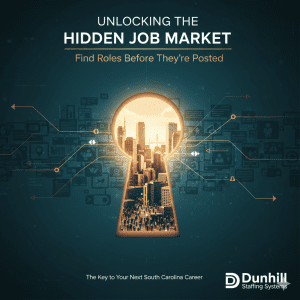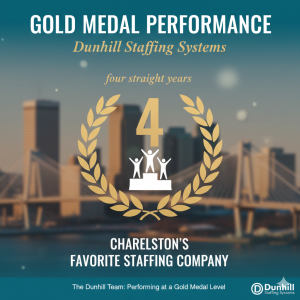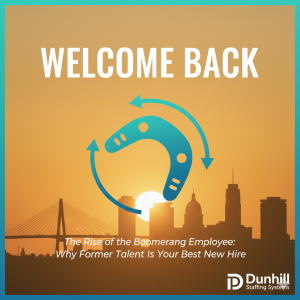The job market is undergoing a seismic shift, driven by rapid technological advancement, economic fluctuations, and evolving industry demands. Continuing education could play a significant role in defining your future. The traditional approach to job searching—with its reliance on static qualifications and rigid career paths—is becoming obsolete. Instead, we are entering an era where continuous learning and upskilling are not just advantageous but essential for career success. This article explores how embracing these principles can equip professionals to thrive in the future of work.
The Changing Landscape of Employment
Gone are the days when a single degree could carry you through a lifetime of work. Today’s job market is characterized by its dynamism—new roles emerge almost overnight, while others become obsolete due to automation or shifting consumer preferences. According to recent studies, nearly 85% of jobs that will exist in 2030 haven’t been invented yet. This statistic underscores the necessity for professionals to remain agile, adapting their skills to meet emerging demands.
Employers are now prioritizing adaptability over static knowledge. They are looking for candidates who can learn new technologies quickly and who demonstrate a commitment to continuous improvement. It’s no longer enough to have a resume filled with past experiences; candidates must showcase their ability to upskill and innovate. Embracing this reality means understanding that your career is a journey rather than a destination.
The Importance of Continuous Learning
Continuous learning is the process of consistently developing new skills and knowledge throughout one’s career. It involves staying ahead of trends, acquiring relevant certifications, and engaging in professional development. With online platforms offering courses on everything from data analytics to digital marketing, the resources available to enhance one’s skill set are practically limitless.
One of the significant benefits of continuous learning is that it fosters resilience in the face of change. Professionals who actively seek out new knowledge are better equipped to pivot when their current role is threatened by automation or industry shifts. For example, a marketing professional who continuously learns about the latest digital tools is likelier to stay relevant than someone who sticks rigidly to traditional strategies.
Upskilling: Bridging the Skills Gap
As industries evolve, so do the skills required to excel within them. Upskilling refers to the process of teaching employees new skills that are complementary to their existing skills. This is particularly vital in sectors experiencing rapid technological advancements, such as information technology, healthcare, and finance.
For both employers and employees, upskilling represents a win-win situation. Employers can cultivate a workforce that meets their evolving needs without the costs and challenges associated with hiring new talent. Employees, on the other hand, can enhance their career prospects and job satisfaction by making themselves more valuable to their organizations.
To successfully implement upskilling, organizations should foster a culture of learning where employees feel encouraged to pursue growth opportunities. This may include providing access to workshops, mentorship programs, or even dedicated time during work hours for professional development. Community colleges offer many courses, some free, for people who want improve their skills to be more marketable. A quick Google search revealed a list of 69 community colleges in South Carolina, our home state. Ultimately, when companies invest in upskilling their workforce, they create an environment where innovation and collaboration thrive.
The Role of Technology in Job Searches
Technology plays a pivotal role in the job search process, transforming how candidates connect with employers. From AI-driven recruitment platforms to social media networking, the landscape is rich with opportunities for those willing to adapt. Job seekers can now leverage tools like LinkedIn to build professional networks, showcase their skills, and even find job openings tailored to their qualifications.
Moreover, technologies like resumes parsing software and applicant tracking systems are altering how resumes are submitted and reviewed. Understanding how these systems work can give job seekers a competitive edge. Optimizing resumes for keywords and ensuring a clear structure can greatly increase the chances of advancing through the initial screening processes.
In addition, virtual interviews are becoming increasingly common, highlighting the need for candidates to be comfortable in front of a camera and aware of the nuances of online communication. Embracing technology not only enhances the job search experience but also prepares candidates for the evolving workplace environment.
Future-Proofing Your Career
So how can professionals prepare for the future job market? The first step is adopting a growth mindset, which involves being open to new experiences and willing to embrace challenges as opportunities for growth. Setting aside time for self-directed learning each week can significantly impact skill acquisition. Whether it’s through online courses, podcasts, or books, creating a personal learning plan ensures that development remains consistent.
Networking is another crucial element. Engaging with peers, attending industry conferences, and participating in discussion forums can provide insights into what skills are currently in demand and what skills are likely to be needed in the future. Building meaningful connections can lead to job opportunities and collaborations that can further enhance one’s professional journey.
Finally, staying informed about industry trends is essential. Subscribing to newsletters, following relevant thought leaders on social media, and reading industry publications can provide valuable information that helps anticipate changes in the job market.
In summary, the future of job searches hinges on our ability to embrace continuous learning and upskilling. By equipping ourselves with the necessary skills and maintaining a proactive approach to our careers, we can navigate the evolving employment landscape with confidence.
The key takeaway? If you’re not learning, you’re falling behind. So, grab that online course, attend that workshop, or simply start reading something new. After all, the future belongs to those who are prepared to chase it. Go get “em!







